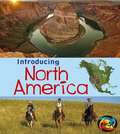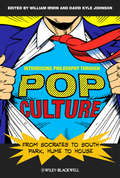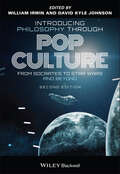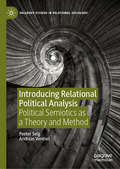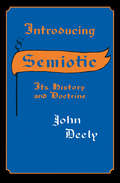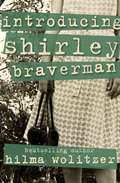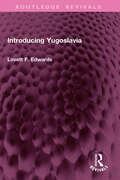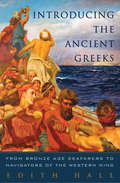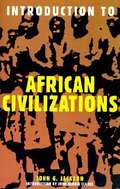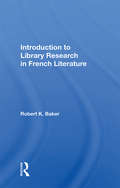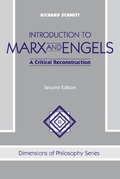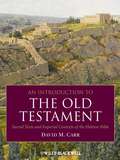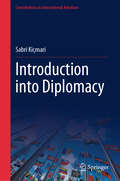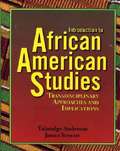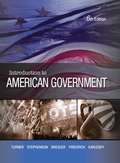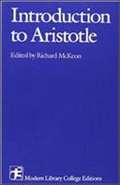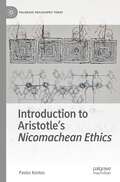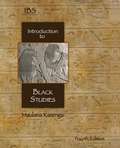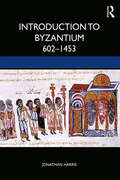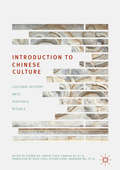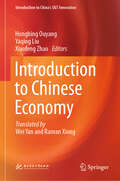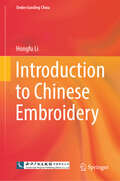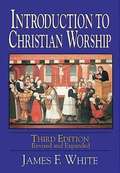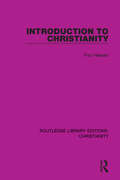- Table View
- List View
Introducing North America (Introducing Continents)
by Chris OxladeIt introduces young readers to the continent of North America through age-appropriate maps, engaging photographs, and simple text. Topics covered within the book include where the continent is, climate, geography, animals and plants, countries, people and languages, natural resources, cities, and famous places.
Introducing Philosophy Through Pop Culture: From Socrates to South Park, Hume to House
by William Irwin David Kyle JohnsonWhat can South Park tell us about Socrates and the nature of evil? How does The Office help us to understand Sartre and existentialist ethics? Can Battlestar Galactica shed light on the existence of God? Introducing Philosophy Through Pop Culture uses popular culture to illustrate important philosophical concepts and the work of the major philosophers With examples from film, television, and music including South Park, The Matrix , X-Men, Batman, Harry Potter, Metallica and Lost, even the most abstract and complex philosophical ideas become easier to grasp Features key essays from across the Blackwell Philosophy and Pop Culture series, as well as helpful editorial material and a glossary of philosophical terms From metaphysics to epistemology; from ethics to the meaning of life, this unique introduction makes philosophy as engaging as popular culture itself Supplementary website available with teaching guides, sample materials and links to further resources at www.pop-philosophy.org
Introducing Philosophy Through Pop Culture: From Socrates to Star Wars and Beyond
by William Irwin David Kyle JohnsonCan Wonder Woman help us understand feminist philosophy? How Does Wakandan technology transcend anti-Blackness? What can Star Trek teach us about the true nature of reality? Introducing Philosophy Through Pop Culture makes important philosophical concepts and the work of major philosophers relevant, fun, and exciting. Using engaging examples from film and television, this easy-to-read book covers everything from basic metaphysics and epistemology to abstract and complex philosophical ideas about ethics and the meaning of life. You don’t have to be a pop culture expert to benefit from this book—even a general awareness of cultural icons like Superman or Harry Potter will be more than enough for you to learn about a wide range of philosophical notions, thinkers, and movements. The expanded second edition offers timely coverage of important topics such as race, gender, personal identity, social justice, and environmental ethics. New essays explore the philosophical underpinnings of The Good Place, Game of Thrones, Black Panther, Star Wars, The Avengers, South Park, The Lego Movie, The Big Bang Theory, and more. This edition is supported by a new website with links to primary philosophical texts, information about all the popular culture discussed, and additional resources for teachers, students, and general readers alike. Features a selection of key essays from the bestselling Blackwell Philosophy and Pop Culture Series Draws on examples from popular media including The Matrix, Lost, Doctor Strange, The Hobbit, Westworld, and Star Trek Explains philosophical concepts such as relativism, skepticism, existentialist ethics, logic, social contract theory, utilitarianism, and mind-body dualism Discusses the ideas of Socrates, Aristotle, Plato, Descartes, Nietzsche, Heidegger, Marx, Mill, Kierkegaard, and other important thinkers Introducing Philosophy Through Pop Culture is an excellent supplementary textbook for introductory philos for introductory philosophy courses and a valuable resource for general readers wanting to learn about philosophy and its connections with pop culture.
Introducing Relational Political Analysis: Political Semiotics as a Theory and Method (Palgrave Studies in Relational Sociology)
by Andreas Ventsel Peeter SelgThis book introduces relational thinking to political analysis. Instead of merely providing an overview of possible trajectories for articulating a relational political analysis, Peeter Selg and Andreas Ventsel put forth a concrete relational theory of the political, which has implications for research methodology, culminating in a concrete method they call political form analysis. In addition, they sketch out several applications of this theory, methodology and method. They call their approach “political semiotics” and argue that it is a fruitful way of conducting research on power, governance and democracy – the core dimensions of the political – in a manner that is envisioned in numerous discussions of the “relational turn” in the social sciences. It is the first monograph that attempts to outline an approach to the political that would be relational throughout, from its meta theoretical and theoretical premises through to its methodological implications, methods and empirical applications.
Introducing Semiotic: Its History and Doctrine (Advances In Semiotics Ser. #No. 287)
by John DeelyThis comprehensive survey of semiotics examines its development from pre-Socratic philosophy to Peirce’s Sign Theory and beyond.In Introducing Semiotics, renowned philosopher and semiotician John Deely provides a conceptual overview of the field, covering its development across centuries of Western philosophical thought. It delineates the foundations of contemporary semiotics and concretely reveals just how integral and fundamental the semiotic point of view really is to Western culture. In particular, the book bridges the gap from St. Augustine in the fifth century to John Locke in the seventeenth.The appeal of semiotics lies in its apparent ability to establish a common framework for all disciplines, a framework rooted in the understanding of the sign as the universal means of communication. With its clarity of exposition and careful use of primary sources, Introducing Semiotics is an essential text for newcomers to the subject and an ideal textbook for semiotics courses.
Introducing Shirley Braverman
by Hilma WolitzerAs World War II rages, a sixth-grader from Brooklyn battles adolescenceEven while the air-raid sirens blare, Shirley Braverman isn&’t worried. Her father is the air-raid warden for their apartment house, and she knows he will keep them safe. There is a war on the other side of the ocean, but here in Brooklyn, life goes on. People ride trolleys, they go to double features at the movies, and they cheer on the Dodgers, win or lose. Shirley is also the best speller in her school&’s sixth grade, and she has her eyes on an even bigger title: spelling champion of New York City. When she&’s not practicing, Shirley takes care of her younger brother, Theodore—a clumsy kid who&’s scared of everything that moves, and some things that don&’t. But to win the spelling bee, she will have to listen to what she&’s always telling Theodore: Believe in yourself, and don&’t be afraid. This ebook features an illustrated biography of Hilma Wolitzer, including rare photos and never-before-seen documents from the author&’s personal collection.
Introducing Yugoslavia (Routledge Revivals)
by Lovett F. EdwardsIntroducing Yugoslavia (1954) looks at the racial and historic chequer-board of 1950s Yugoslavia, providing a fascinating insight into the social and cultural aspects of a land that few Westerners visited at the time. Avoiding politics, it provides sociocultural descriptions and historical details across a wealth of the country’s different regions.
Introducing the Ancient Greeks: From Bronze Age Seafarers to Navigators of the Western Mind
by Edith Hall"Wonderful . . . a thoughtful discussion of what made [the Greeks] so important, in their own time and in ours."--Natalie Haynes, Independent The ancient Greeks invented democracy, theater, rational science, and philosophy. They built the Parthenon and the Library of Alexandria. They wrote down the timeless myths of Odysseus and Oedipus, and the histories of Leonidas's three hundred Spartans and Alexander the Great. But understanding these uniquely influential people has been hampered by their diffusion across the entire Mediterranean. Most ancient Greeks did not live in what is now Greece but in settlements scattered across Turkey, Syria, Egypt, Libya, France, Italy, Bulgaria, Russia, and Ukraine. They never formed a single unified social or political entity. Acclaimed classics scholar Edith Hall's Introducing the Ancient Greeks is the first book to offer a synthesis of the entire ancient Greek experience, from the rise of the Mycenaean kingdoms of the sixteenth century BC to the final victory of Christianity over paganism in AD 391. Each of the ten chapters visits a different Greek community at a different moment during the twenty centuries of ancient Greek history. In the process, the book makes a powerful original argument: A cluster of unique qualities made the Greeks special and made them the right people, at the right time, to take up the baton of human progress. According to Herodotus, the father of history, what made all Greeks identifiably Greek was their common descent from the same heroes, the way they sacrificed to their gods, their rules of decent behavior, and their beautiful language. Edith Hall argues, however, that their mind-set was just as important as their awe-inspiring achievements. They were rebellious, individualistic, inquisitive, open-minded, witty, rivalrous, admiring of excellence, articulate, and addicted to pleasure. But most important was their continuing identity as mariners, the restless seagoing lifestyle that brought them into contact with ethnically diverse peoples in countless new settlements, and the constant stimulus to technological innovation provided by their intense relationship with the sea. Expertly researched and elegantly told, Introducing the Ancient Greeks is an indispensable contribution to our understanding of the Greeks.
Introduction To African Civilization
by John Henrik Clarke John G. JacksonThis work challenges all the standard approaches to the saga of African history, from the dawn of prehistory to the modern resurgent Africa of today.
Introduction To Library Research In French Literature
by Robert K. BakerThis book is an introduction to the complexities of library research for the student of French literature. addresses the structure of the modern American academic library, giving particular attention to the exploitation of information in the card catalog, interlibrary loans, and the reference function. is a selective bibliographic guide to the more important information resources (dictionaries, encyclopedias, bibliographies, etc.) likely to be found in the medium to large college or university library. Each title listed in this section is annotated as to scope and coverage, and the introduction to each type of reference tool includes a list of standard library subject headings for further library research. The final chapter provides practical suggestions on how to "get ready for research" on a term paper, as well as suggestions for further readings that explain the purposes and methodology of literary scholarship.
Introduction To Marx And Engels
by Richard SchmittThis book steers a middle path between those who argue that the theories of Marx and Engels have been rendered obsolete by historical events and those who reply that these theories emerge untouched from the political changes of the last ten years. Marxism has been a theory of historical change that claimed to be able to predict with considerable accuracy how existing institutions were going to change. Marxism has also been a political program designed to show how these inevitable changes could be hastened. Richard Schmitt argues that Marxian predictions are ambiguous and unreliable, adding that the political program is vitiated by serious ambiguities in the conceptions of class and of political and social transformations. Marxism remains of importance, however, because it is the major source of criticisms of capitalism and its associated social and political institutions. We must understand such criticisms if we are to understand our own world and live in it effectively. While very critical of the failures of Marx and Engels, this book offers a sympathetic account of their criticism of capitalism and their visions of a better world, mentions some interpretive controversies, and connects the questions raised by Marx and Engels to contemporary disputes to show continuity between social thought in the middle of the last century and today. Addressed to undergraduate students, the book is easily accessible. It will be important in introductory or middle-level courses in sociology, political theory, critical theory of literature or law. It will also be useful in graduate courses in political theory, sociology, and economics.
Introduction To The Old Testament: Sacred Texts And Imperial Contexts Of The Hebrew Bible
by David M. CarrThis comprehensive, introductory textbook is unique in exploring the emergence of the Hebrew Bible in the broader context of world history. It particularly focuses on the influence of pre-Roman empires, empowering students with a richer understanding of Old Testament historiography. <P><P>Provides a historical context for students learning about the development and changing interpretations of biblical texts <P><P>Examines how these early stories were variously shaped by interaction with the Mesopotamian and Egyptian, Assyrian, Babylonian, Persian, and Hellenistic empires <P><P>Incorporates recent research on the formation of the Pentateuch <P><P>Reveals how key biblical texts came to be interpreted by Jewish, Christian, and Muslim faiths Includes numerous student-friendly features, such as study questions, review sections, bibliographies, timelines, and illustrations and photos
Introduction into Diplomacy (Contributions to International Relations)
by Sabri KiçmariThe textbook is a rarity as it explores the functions of diplomacy from a practical perspective on diplomatic activity. This in-depth study redefines diplomacy, distinguishing it from conventional definitions. While the historical context of diplomacy is briefly discussed, the spotlight then turns to six diplomatic classics: Niccolo Machiavelli, Hugo Grotius, Ernest Satow, Harold Nicolson, Henry Kissinger, and Geoff R. Berridge. Thus, their brief biographies and core diplomatic tenets are revealed. Many aspects of the theories of international relations are covered, including liberalism, realism, neoliberal institutionalism, and constructivism. Diplomatic protocol is analysed as an instrument, guiding the position of political and diplomatic representatives according to the ranking system. Practical examples abound, with illustrations of protocol rules from the United States, the United Kingdom, Japan, Australia, France, Germany, China, and Kosovo. The pivotal role of language in diplomacy is discovered as a communication tool, alongside an examination of its specific significance. It also delves into public diplomacy, exploring its evolution over the three two decades, heavily influenced by media developments. The book also focuses on the establishment of sociology of diplomacy as a new independent discipline. It sheds light on the necessary scientific research procedures, both theoretical and empirical, grounded in descriptive methodologies, understanding, and sociological explanations of the diplomatic phenomena. A crucial part of the book examines the connection between diplomacy and ethics and asserts that while states naturally pursue their interests, adherence to ethical principles must remain steadfast. Finally, gain insights into the traits and characteristics of a modern diplomat as the book draws to a close.
Introduction to African American Studies: Transdisciplinary Approaches and Implications
by James Stewart Talmadge AndersonThere is an ongoing debate as to whether African American Studies is a discipline, or multidisciplinary or interdisciplinary field. Some scholars assert that African American Studies use a well-defined common approach in examining history, politics, and the family in the same way as scholars in the disciplines of economics, sociology, and political science. Other scholars consider African American Studies multidisciplinary, a field somewhat comparable to the field of education in which scholars employ a variety of disciplinary lenses-be they anthropological, psychological, historical, etc., --to study the African world experience. In this model the boundaries between traditional disciplines are accepted, and researches in African American Studies simply conduct discipline based an analysis of particular topics. Finally, another group of scholars insists that African American Studies is interdisciplinary, an enterprise that generates distinctive analyses by combining perspectives from different traditional disciplines and synthesizing them into a unique framework of analysis.
Introduction to American Government
by Charles C. Turner Robert J. Bresler Robert J. Friedrich D. Grier Stephenson Jr.The need persists for widespread mastery of the political system John Quincy Adams once described as "the most complicated on the face of the globe." Adams was writing about two hundred years ago, and things certainly haven't gotten less complicated since then. In the early 2000s we experienced a number of political complications, including three close and contentious presidential elections that geographically and ideological divided our nation into "red" and "blue" states.
Introduction to American Government (Ninth Edition)
by Charles C. Turner Robert J. Bresler Robert J. Friedrich D. Grier Stephenson Jr.American politics is a constantly changing montage of people and events, of facts and opinions. <P><P> In order to keep up with our changing environment, and to make sure students have the most up-to-date information available, each new edition of Introduction to American Government undergoes a vigorous process of fact-checking and updating. In this edition, for example, readers will find revised weblinks and readings for further study; more critical thinking questions; and discussions of the latest events in American government-such as the 2016 elections, immigration reform, conflict with ISIS, racial tensions, and important Supreme Court decisions on same-sex marriage and on the First Amendment. <P><P>In addition, each chapter contains important new material and the most current available facts and figures. This textbook is not a "theme" or point-of-view book. Aside from emphasizing the importance of politics and political involvement, the book embraces no single ideological perspective; it does not attempt to make readers Democrats or Republicans, liberals or conservatives. <P><P> To ensure a single voice in this presentation, one author has served as general editor. The goals are knowledge of, and critical thinking about, American politics and government. Accordingly, we have designed the book to encourage students to engage the material. Passive reading is not enough. Understanding so important and complex a subject necessitates active intellectual involvement.
Introduction to Aristotle
by Aristotle Richard P. MckeonThis Introduction to Aristotle is a presentation in which Aristotle is permitted to speak for himself in the context of a sketched scheme of the relation of what he says in one treatise to what he says elsewhere. The seven introductions which precede these seven works place them in their contexts by describing their relations to other works or parts of works, their place in the scheme of the Aristotelian sciences, and the fashion in which the subjects treated in the sciences they expound may be considered in the approaches proper to other sciences in the system.
Introduction to Aristotle's Nicomachean Ethics (Palgrave Philosophy Today)
by Pavlos KontosThis book provides a balanced and accessible introduction to Aristotle's Nicomachean Ethics. It carefully and comprehensively follows the thread of Aristotle’s argument and sheds light on topics that all too often receive little attention or are entirely ignored in the existing textbooks (such as self-control, legislative science and the legislator, the life of the money-maker, craft-knowledge, comprehension, and beastliness).Its objective is not only to offer an academically reliable presentation of Aristotle’s Ethics but to also defend Aristotle’s main tenets—or, at least, to present them in their most defensible form.It places the Nicomachean Ethics within the study of ethics generally; students are invited to understand Aristotle’s claims in the light of, or in contrast to, other ethical theories or their own intuitions about ethical matters.It follows the reader of the Nicomachean Ethics in action, registering questions, expectations and progress within an insightful exegesis of Aristotle's philosophical argument. It is replete with pedagogical tools including examples from our concrete everyday experience, paintings, films, and literature, end of chapter summaries, internet resources, suggestions for further reading, study questions, and essay questions.
Introduction to Black Studies (4th Edition)
by Maulana KarengaA comprehensive textbook that covers Black/African American studies across a variety of academic disciplines.
Introduction to Byzantium, 602–1453
by Jonathan HarrisIntroduction to Byzantium, 602–1453 provides students with an accessible guide to medieval Byzantium. Beginning with the near collapse of Byzantium in the seventh century, the book traces its survival and development through to its absorption by the Ottoman empire. As well as having an overall political narrative, the chapters cover a wide range of topics including society and economy, art and architecture, literature and education, military tactics and diplomacy, gender and education. They also explore themes that remain prominent and highly debated today, including relations between Islam and the West, the impact of the Crusades, the development of Russia, and the emergence of Orthodox Christianity. Comprehensively written, each chapter provides an overview of the particular period or topic, a summary of the ongoing historiographical debates, primary source material textboxes, further reading recommendations and a ‘points to remember’ section. Introduction to Byzantium, 602–453 provides students with a thorough introduction to the history of Byzantium and equips them with the tools to write successful analytical essays. It is essential reading for any student of the history of the Byzantine empire.
Introduction to Chinese Culture: Cultural History, Arts, Festivals And Rituals
by Guobin Xu Yanhui Chen Lianhua XuPromoting cultural understanding in a globalized world, this text is a key tool for students interested in understanding the fundamentals of Chinese culture. Written by a team of experts in their fields, it offers a comprehensive and detailed introduction to Chinese culture and addresses the fundamentals of Chinese cultural and social development. It notably considers Chinese traditional culture, medicine, arts and crafts, folk customs, rituals and etiquette, and is a key read for scholars and students in Chinese Culture, History and Language.
Introduction to Chinese Economy (Introduction to China's S&T Innovation)
by Hongbing Ouyang Yaqing Liu Xiaofeng ZhaoThe original version of this book is a bilingual book for international students and overseas readers, which is included in the “Introduction to China’s S&T Innovation”, a project funded by the Hubei Provincial Public Welfare Academic Publication Special Funds in 2024. The book consists of 14 chapters. Based on the introduction of the historical foundation and natural conditions of China's economic development, it introduces the history of China's economic development in stages such as before 1949, 1949-1978, after 1978, and the new period; and then in the form of special topics it discusses China's opening up to the outside world and international trade , rural reform and agricultural modernization, reform of the state-owned enterprise system with Chinese characteristics, industrialization and urbanization, and reform of the state-owned enterprise system with Chinese characteristics, industrialization process and urban development, macro-economic policy and fiscal and taxation system, and the reform and establishment of modern financial system; and finally, it introduces the economic development model with Chinese characteristics, the development concept and development pattern in the new era. The book explains the policy background and internal logic of China's economic growth, reflects the achievements and experience of China's economic reform, and tells the world the story of China's economic miracle in a clear, concise, and easy-to-understand manner.
Introduction to Chinese Embroidery (Understanding China)
by Hongfu LiThis book provides a comprehensive introduction to Chinese embroidery, including its history, styles in different regions, patterns, techniques, and its appreciation. It serves as the first guidebook in the international community for scholars, students either at undergraduate or postgraduate level, artists, and other interested general audience to get a bird’s-eye view of Chinese embroidery. Through this book, readers will not only acquire a general understanding of this brilliant folk art, but also be carried away by the sophistication and exquisiteness of a legion of embroidery works created by Chinese artists.
Introduction to Christian Worship (3rd Edition, Revised and Expanded)
by James F. WhiteThis Edition traces the development of the major forms of Christian worship and includes discussion of the newest service books of the principal churches of North America and the British Isles. This liturgical history is used widely in Protestant seminaries and is read by clergy and laity alike as an accurate, informative, and accessible introduction to all aspects of Christian worship.
Introduction to Christianity
by Paul HessertOriginally published in 1958, Introduction to Christianity considers the nature of Christianity as a life shared in an historical, continuing community. Divided into five parts, the book is a comprehensive interpretation of Christianity as a people created by God’s activity in history, with a focus on the proclamation of the Gospel. It highlights and examines the relevance of Christian doctrine to reflections on the meaning of life, and considers the significance of this at a time in which attitudes towards religion are increasingly ambiguous. Introduction to Christianity is ideal for those with an interest in the history of Christianity, Christian theology, and religious philosophy.
